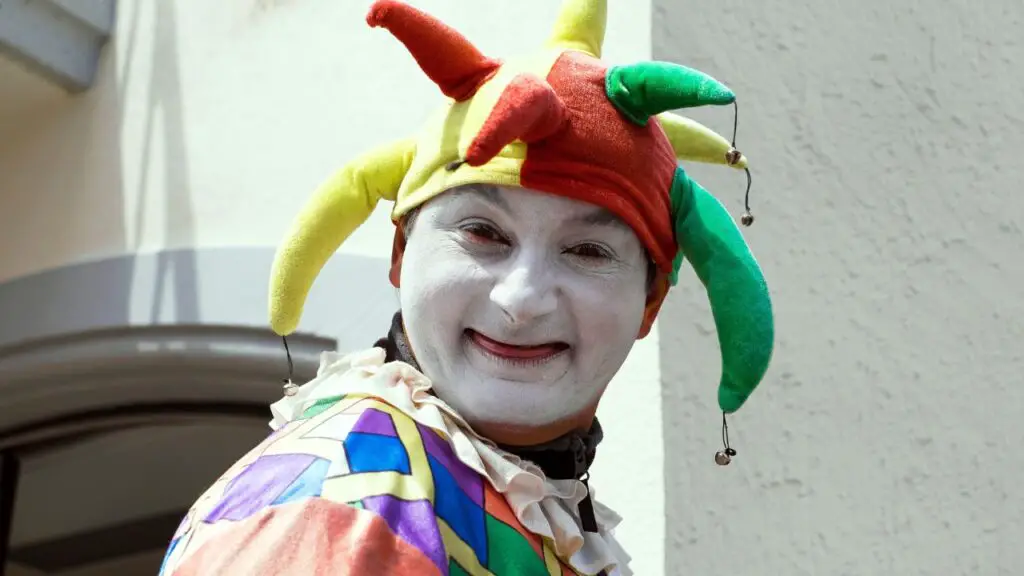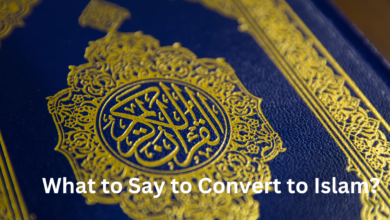History Of April Fools Day in Islam
April Fools' Day: Tracing its Unique Evolution in Islamic Culture

History Of April Fools Day in Islam

Introduction
April Fools’ Day, known for its playful pranks and light-hearted jokes, has become a globally recognized day of humor and jest. While its origins are often traced back to European traditions, it’s intriguing to explore how this day is perceived and celebrated in different cultures. In Islamic culture, April Fools’ Day has a unique history and significance, intertwining traditions, historical events, and religious sensitivities.
Origins and Evolution
The history of April Fools’ Day in Islamic culture is not as straightforward as its European counterpart. Unlike the clear documentation of April Fools’ Day’s origins in the Western world, its history in Islamic culture has more nuanced and diverse influences.
- Historical Events: In Islamic history, there is a notable connection between April Fools’ Day and significant historical events. One such instance is linked to the Islamic calendar, which follows a lunar system. Some pranks and jokes may be related to the discrepancies that arise when trying to align the lunar calendar with the solar calendar. As a result, misunderstandings in timing could lead to light-hearted pranks.
- Misinterpretations in Translation: The history of April Fools’ Day in Islamic culture can also be attributed to misunderstandings and mistranslations. Islam, as a religion, places great importance on truthful communication and sincerity. Misinterpretations or mistranslations of texts could lead to the propagation of false information, inadvertently giving rise to playful pranks.
Cross-Cultural Influences: As the world becomes more interconnected, cultural exchange becomes more prevalent. April Fools’ Day, though not a traditional Islamic holiday, has gained recognition through media, including television, movies, and the internet. This cross-cultural interaction has brought the concept of pranking and jesting to the attention of Muslims, leading to its adaptation in various ways.

Islamic Perspective on Humor
Islamic culture has a deep appreciation for humor and wit, but within the bounds of ethical and religious guidelines. The Prophet Muhammad himself is known to have exhibited a sense of humor on various occasions, often using wit to make important points or to foster a sense of camaraderie among his followers.
However, it’s crucial to remember that Islamic ethics emphasize sincerity and honesty. This presents a challenge on April Fools’ Day, where pranks and jokes can sometimes blur the line between harmless fun and deception. Islamic scholars and leaders often emphasize that while humor is encouraged, it should never harm or deceive others, and it should always be within the confines of respect and truthfulness.
Celebrating April Fools’ Day in Islamic Culture
The celebration of April Fools’ Day within Islamic culture varies from region to region and from individual to individual. Some Muslims embrace the day as an opportunity to share light-hearted moments with friends and family. They engage in playful pranks and jokes that adhere to Islamic values, making sure not to cross any ethical boundaries.
Others may choose not to participate, considering the potential for misinformation and the risk of inadvertently deceiving others. Their decision stems from a commitment to upholding the principles of truthfulness and sincerity that are central to Islamic teachings.

Guidelines for a Respectful Celebration
For those who choose to engage in April Fools’ Day festivities within the Islamic context, there are several guidelines to follow:
- Avoid Deception: Jokes and pranks should be harmless and never intended to deceive or hurt others. Maintaining truthfulness and honesty is of utmost importance.
- Respect Religious Sensitivities: Be mindful of the fact that some individuals may find certain topics or actions offensive due to their religious beliefs. Respect for others’ sensitivities is crucial.
- Prioritize Respect: Ensure that the pranks and jokes maintain respect for all individuals involved. Humor should never be at the expense of someone’s dignity or feelings.
- Uphold Islamic Values: While having fun is encouraged, Islamic values should not be compromised. Any celebration should align with the teachings of Islam.
Conclusion
The history of April Fools’ Day in Islamic culture is an intricate blend of historical events, cultural influences, and religious considerations. While the day is not a traditional Islamic holiday, it has found its way into the hearts of Muslims around the world. The celebration of April Fools’ Day within Islamic culture showcases the balance between humor and ethics, emphasizing the importance of sincerity, truthfulness, and respect. As with any cultural celebration, understanding and adapting its practices within the context of religious beliefs is essential to ensure a harmonious and respectful celebration.
Faqs About History Of April Fools Day in Islam
What is the History Of April Fools Day in Islam?
The history of April Fools’ Day in Islamic culture is a blend of historical events, cross-cultural influences, and religious considerations. It is marked by connections to the Islamic calendar, misinterpretations, and an appreciation for humor within the bounds of Islamic ethics.
Is April Fools’ Day an officially recognized holiday in Islam?
No, April Fools’ Day is not an officially recognized Islamic holiday. However, it has gained recognition among Muslims due to cross-cultural influences and media exposure.
How do historical events relate to April Fools’ Day in Islamic culture?
Some pranks and jokes on April Fools’ Day are linked to discrepancies between the Islamic lunar calendar and the solar calendar. Historical events that involve timing misunderstandings or miscalculations may lead to light-hearted pranks.
Does Islam encourage humor and jesting?
Yes, Islam encourages humor and jesting within ethical and religious boundaries. The Prophet Muhammad exhibited a sense of humor on various occasions. However, jokes should never harm, deceive, or offend others, and they should uphold the principles of sincerity and truthfulness.
How do Muslims celebrate April Fools’ Day in Islamic culture?
Muslims celebrate April Fools’ Day with light-hearted pranks, jokes, and humor shared among friends and family. The celebrations are characterized by respect for religious sensitivities and adherence to Islamic values.
Are there guidelines for celebrating April Fools’ Day in Islamic culture?
Yes, guidelines include avoiding deception, respecting religious sensitivities, maintaining respect, and upholding Islamic values. Jokes and pranks should always be harmless and considerate of others’ feelings.
How do Islamic values influence the celebration of April Fools’ Day?
Islamic values emphasize truthfulness, sincerity, and respect for others. While celebrating April Fools’ Day, Muslims ensure that their actions align with these principles, avoiding any form of deception or harm.
Can April Fools’ Day pranks cross ethical boundaries in Islamic culture?
Yes, pranks that deceive, offend, or hurt others, or those that compromise Islamic ethics, can cross ethical boundaries. Muslims prioritize the well-being and feelings of others in their celebrations.
Is the celebration of April Fools’ Day the same across all Muslim-majority regions?
The celebration of April Fools’ Day varies across regions with Muslim-majority populations. Some embrace the festivities, while others may abstain due to concerns about deception and misinformation.
How can individuals strike a balance between humor and religious considerations on April Fools’ Day?
Individuals can strike a balance by ensuring that their pranks and jokes remain light-hearted, respectful, and truthful. Understanding and respecting the boundaries of Islamic ethics are key to a harmonious celebration.





